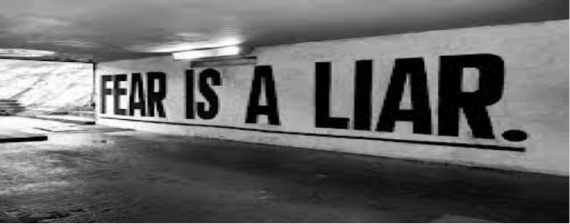Is stress bad for your health? Based on the roughly sixty million articles published in the last year linking stress and poor health, you're not alone in making that assumption. Recent research in how people react to and manage stress offers shocking evidence that stress can have an upside! In Kelly McGonigal's recent book The Upside of Stress. Why Stress is Good for You, and How to Get Good at It, she offers compelling research results and strategies for making friends with stress.
Different Types of Stress
According to McGonigal, there is more than one type of stress response. The threat response (fight or flight) primes you for self-defense rather than success. A chronic threat response to stress leads to increased blood pressure and inflammation that can accelerate aging and disease.
This fight or flight response that we most commonly think of when we think of stress is not the only one. There is what McGonigal terms, a challenge-response that helps us focus and gives us energy. (Think of the feeling you have standing at a podium, looking out at the audience in front of you.)
Strategies for Making Stress Work for You
Strategy One - Reframing:Researchers have found that the most important factor in determining how stress affects you is how you think about your ability to handle it and how you react to it. Psychologists refer to this as mindset, the mental attitude and beliefs that determine a person's responses to situations. Most people are of the mindset that stress is bad and must be avoided at all costs. Using reframing, a psychological technique that questions common assumptions, you can shift how you think about stress and alter your physical and emotional response to it.
Here are some questions that can help you reframe a stressful situation:
How hard is this going to be?
What skills do I have that I can use?
What strengths can I call on?
When in the past have I been courageous?
Who can help me?
Strategy Two - Finding Meaning: Finding meaning in stressful situations inoculates people against the negative effects of stress. A ten-year study of more than nine thousand people in the U.K. who reported highly meaningful lives had a 30% lower death rate compared with people who reported little stress. Because people have the capacity to make sense out of distress, finding meaning helps us stay motivated in the face of challenges. According to McGonigal, "stress is an inevitable consequence of engaging in roles and pursuing goals that feed our sense of purpose."
Strategy Three - Bigger Than Self -Goals: When you focus on contributing to something bigger than yourself, your motivation shifts from trying to prove that you're good enough to a purpose greater than yourself. Jennifer Crocker, a psychology professor at Ohio State University studied self-focused vs. bigger-than-self goals. Her study found when people connect to bigger-than-self goals, they feel more hopeful, curious, caring and grateful. People who are self-focused are more likely to feel confused, anxious and lonely.
Cocker tested bigger-than-self thinking on how participants experience a stressful job interview. One group was asked to think about their most important values and how the job would allow them to help others and make a difference. The other group was given no instructions. Both groups were videotaped and had their hormone levels measured. Participants who reflected on bigger- than- self-goals smiled more and made more eye contact; behaviors that increase connection. The interviewers found the bigger-than-self participants more inspiring.
Here are some questions to help you focus on your bigger-than-self-goals before an interview:
What kind of positive impact do I want to have on others?
What mission in life or work most inspires me?
What do I want to contribute to the world?
What change do I want to create?
No doubt deadlines, difficult managers and juggling home and work-life are stressful. These are a few suggestions based on scientific research that have worked for others. What's more interesting is what you think about managing stress. What strategies have worked for you?
